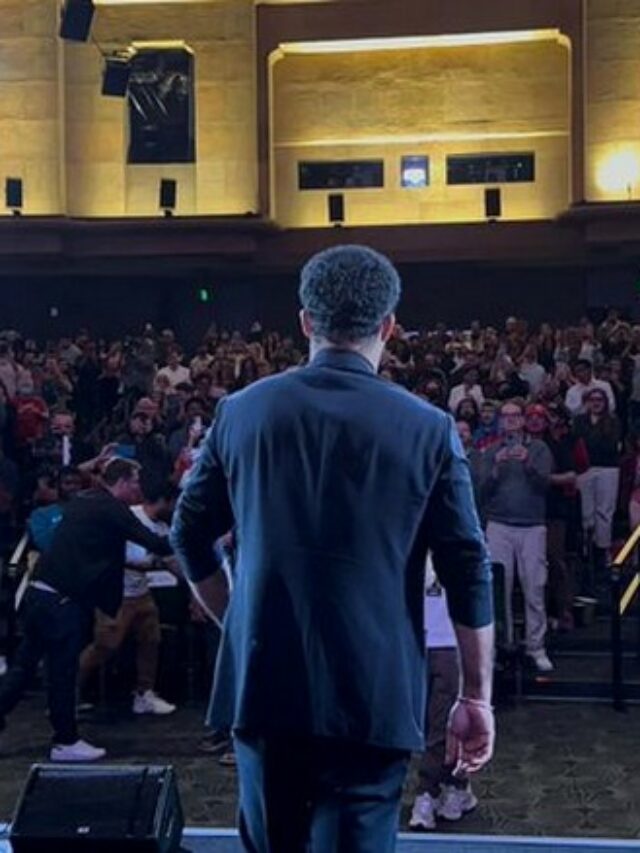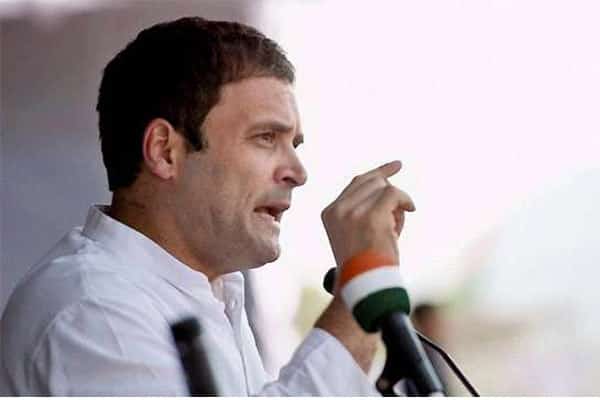One of the main takeaways from Rahul Gandhi’s interaction with the students and the media in the US is the indication that he has given about being the Congress’ Prime Ministerial candidate in 2019 — if his party approves.
It is possible that the charge against him of being a “reluctant” politician and even “stupid”, which he admitted, made him say that he is willing to play a more proactive role and be his party’s “face” in the next general elections.
If anything, the declaration of intent means that it will not be long before he becomes the Congress president. There is also the implication that he will be increasingly seen on public platforms which was earlier promised by some of his party members, especially at the time of his unprepossessing television interview in 2014, but never implemented.
For Rahul Gandhi’s supporters, it was probably just as well that he agreed to go to the US shortly after visiting Norway. The reason is that contrary to the feeling that the Congress Vice President was more interested in travelling abroad than in politics at home, his exchanges at the University of California in Berkeley showed that he is maturing as a politician — even if slowly.
Two confessions underline this point. One is on the profusion of dynastic politics in India even if he has been criticised for being out of touch with aspirational India. The other is the admission that the Congress’s “arrogance” made it lose contact with the people a decade after coming to power in 2004.
As for the children of politicians following in the footsteps of their fathers, he said that there are any number of such instances in India.
It isn’t only the Nehru-Gandhis who are guilty of this practice but also the Abdullahs in Kashmir, the Badals in Punjab, the Karunanidhis in Tamil Nadu and the Mulayam Singh Yadavs and Lalu Prasads in Uttar Pradesh and Bihar.
Then, there is Odisha Chief Minister Naveen Patnaik, who is the son of a former Chief Minister, Biju Patnaik; Union minister Jayant Sinha, who is the son of a former Union minister, Yashwant Sinha; BJP MP Anurag Thakur, who is the son of a former Himachal Pradesh Chief Minister, Prem Kumar Dhumal; Uttar Pradeh legislator Pankaj Singh, who is the son of Union Home Minister Rajnath Singh and so on.
It is now up to Rahul Gandhi to prove or disprove Union Minister Smriti Irani’s quip about being a “failed dynast”, but he is right about dynasticism being a fact of life in India — in politics, in films, in the corporate sector, in the legal profession — even if it is not something to gloat about.
In America, too, there are the Clintons and the George Bushes while earlier there were the Kennedys, and in Pakistan, there are the Bhuttos.
The proof of the pudding lies, of course, in the eating, and in the case of dynasts it is in the winning of elections which matters — something which Smriti Irani, a successful actress and a failed Human Resource Development Minister, is yet to achieve.
For Rahul Gandhi to succeed, he has first to ascertain what went wrong with the Congress in 2014. If it was due to arrogance, as he has said, he has to find out whose haughtiness let the party down.
Since Manmohan Singh is generally not associated with hauteur, was it the attitude of Sonia Gandhi, who has been called — perhaps unfairly — the power behind the throne?
In any event, it is difficult to believe in the Congress being conceited at a time when it was immersed in a plethora of scams which brought about its downfall. So there must be some other explanation for its decline and fall.
It would have been understandable if the arrogance perceived by Rahul Gandhi had stemmed from what Arvind Subramanian, the Modi government’s Chief Economic Adviser, said about the fastest ever reduction of poverty under the Congress-led government between 2005-06 and 2011-12.
But although the Congress Vice President did talk about his party’s achievement in lifting millions out of poverty, he only spoke in general terms about how a growth rate of eight per cent over the next 10-15 years could lift 130 million out of poverty by 2030.
In this context, it was possible to get some idea about his hitherto hazy economic ideas, for he said that the high growth rate should be propelled by small and medium businesses, which, according to him, constitute the “bedrock” of the Indian economy, and not by “massive factories” as in China.
Evidently, his dislike of the corporate czars, which he expressed by his jibe about the present government being “suit-boot ki sarkar”, remains unchanged.
But what the primacy of the small and medium industries will mean is that India will have to continue to import planes, ships, submarines, howitzers and the like since these can be built only in “massive factories”.
His thumbs up to Modi’s Make-in-India initiative is welcome in this context, but the investors may not be interested only in small and medium enterprises. Rahul Gandhi’s economic outlook evidently needs to be brushed up.
























